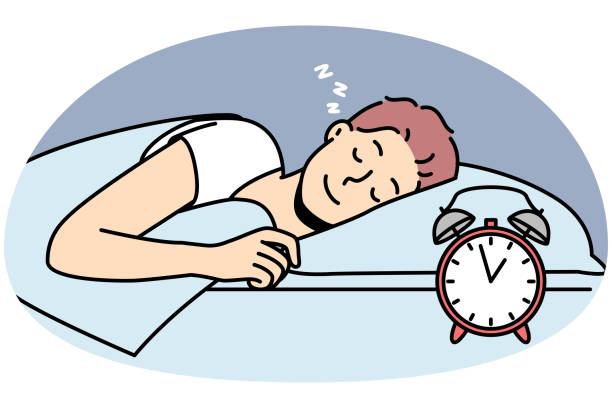When it comes to losing weight, hormones are key players in the process. These powerful messengers help regulate your metabolism, appetite, and fat storage. Understanding how hormones impact weight loss and learning how to optimize them can significantly enhance your efforts to shed those extra pounds. By taking the right steps to support hormone function, you can improve fat-burning, reduce cravings, and boost your metabolism, making your weight loss journey more efficient and sustainable.
Here are ten proven strategies to activate your weight loss hormones and accelerate your body’s fat-burning potential.
1. Prioritize Quality Sleep

Your sleep schedule has a significant impact on hormones like leptin and ghrelin, which play essential roles in regulating hunger and fullness. When you don’t get enough quality sleep, ghrelin levels increase, leading to heightened hunger and cravings, while leptin levels drop, causing you to feel less satisfied after eating.
This hormonal imbalance can make it much harder to stick to a healthy eating plan. To keep these hunger-related hormones in check and support your weight loss efforts, aim for 7 to 9 hours of restful sleep each night. Prioritizing good sleep habits not only helps with hunger control but also boosts overall health and well-being.
2. Stay Active Throughout the Day
Physical activity plays a crucial role in boosting hormones like adiponectin and growth hormone, both of which support fat burning and metabolism. Engaging in regular physical activities such as walking, stretching, or climbing stairs can help increase these fat-burning hormones and enhance your weight loss efforts. However, incorporating strength training and high-intensity interval training (HIIT) into your fitness routine is even more effective for achieving long-term hormonal balance and accelerating fat loss.
These forms of exercise not only boost metabolism but also improve muscle mass, further promoting fat burning and overall health. Make physical activity a part of your daily routine to optimize your hormones and reach your weight loss goals more efficiently.
3. Choose Whole Foods Over Processed Foods
Processed foods that are high in sugar and unhealthy fats can have a negative impact on your insulin levels, causing spikes that promote fat storage and weight gain. To keep your insulin levels stable and support your weight loss goals, it’s essential to focus on whole, nutrient-dense foods.
Incorporating a variety of vegetables, lean proteins, whole grains, and healthy fats into your diet helps regulate insulin levels and prevents the harmful spikes that contribute to fat storage. By choosing wholesome, unprocessed foods, you not only nourish your body but also create a foundation for balanced hormones and sustainable weight management.
4. Manage Your Stress Levels

Chronic stress can elevate cortisol levels, a hormone known to promote fat accumulation, particularly around the midsection. Elevated cortisol can hinder weight loss efforts and lead to increased belly fat. To combat this, it’s important to incorporate stress-reducing activities into your daily routine.
Practices like meditation, yoga, deep breathing exercises, and spending time outdoors can help lower cortisol levels and reduce stress. By managing stress effectively, you not only support your weight loss goals but also enhance your overall well-being, leading to better mental health and a more balanced lifestyle.
5. Consume Enough Protein
Protein-rich foods are essential for boosting levels of peptide YY, a hormone that helps you feel full and satisfied, reducing the chances of overeating. In addition to promoting satiety, protein plays a crucial role in maintaining muscle mass and supporting the production of fat-burning hormones like glucagon.
By including high-quality protein sources such as eggs, fish, beans, and Greek yogurt in every meal, you can enhance your weight loss efforts, support muscle repair and growth, and improve your body’s ability to metabolize fat. Prioritizing protein in your diet not only helps control hunger but also promotes a leaner, healthier physique.
6. Don’t Skip Meals
Skipping meals can have a detrimental effect on your metabolism and lead to an increase in cortisol levels, a stress hormone that can promote fat storage. To support optimal metabolism and maintain stable energy levels, it’s important to eat balanced meals at regular intervals throughout the day. By doing so, you help keep your blood sugar levels stable, which in turn prevents excessive hunger and cravings. This also supports the proper function of key weight-related hormones such as insulin and glucagon, which play a vital role in regulating fat storage and metabolism. Consistently fueling your body with nutritious meals helps improve hormonal balance and contributes to more effective weight management.
7. Incorporate Healthy Fats
Not all fats are bad for your health. In fact, healthy fats play a crucial role in regulating hormones like leptin, which helps control hunger and fullness. Healthy fats, such as those found in avocados, nuts, seeds, and olive oil, not only support hormonal balance but also provide sustained energy throughout the day, helping to prevent energy crashes and reduce cravings.
By including these nutrient-dense fats in your diet, you can promote weight loss, improve satiety, and enhance overall health. Embracing healthy fats as part of a balanced diet helps keep your body fueled, supports weight management, and optimizes your metabolic function.
8. Stay Hydrated

Drinking enough water is essential for maintaining a healthy metabolism and supporting the proper function of hormones like aldosterone, which plays a key role in regulating fluid balance in the body. Staying hydrated not only helps keep your metabolism running efficiently but also prevents dehydration, which can lead to increased hunger, low energy levels, and poor concentration.
To keep your body functioning optimally and promote weight loss, aim to drink at least 8-10 glasses of water daily. If you’re physically active, be sure to increase your water intake to compensate for the fluids lost through sweat. Proper hydration supports overall health, boosts energy, and helps you stay on track with your weight management goals.
9. Limit Refined Carbohydrates and Sugary Drinks
Refined carbohydrates and sugary beverages can cause insulin spikes, leading to increased fat storage and hindering your weight loss efforts. To promote fat burning and stabilize insulin levels, it’s important to replace these processed foods with complex carbohydrates such as quinoa, brown rice, and sweet potatoes. These whole foods provide a steady release of energy without causing dramatic fluctuations in blood sugar.
Additionally, opt for hydrating beverages like water, herbal teas, or black coffee instead of sugary drinks, which can contribute to excess calorie intake and insulin resistance. By making these simple dietary swaps, you can improve your metabolism, regulate blood sugar, and support your weight loss goals more effectively.
10. Consider Intermittent Fasting
Intermittent fasting is a powerful strategy that can boost the production of growth hormone and improve insulin sensitivity, both of which play a key role in supporting weight loss. By allowing your body to rest from constant digestion, intermittent fasting helps optimize fat burning and regulates metabolism.
Popular methods include the 16:8 approach, where you eat during an 8-hour window and fast for 16 hours, or alternate-day fasting, which alternates between fasting and eating days. These flexible fasting methods can be tailored to fit your lifestyle and health goals. Before starting any fasting plan, it’s important to consult with a healthcare provider to ensure it’s safe and effective for your individual needs.
Incorporating intermittent fasting into a balanced diet and exercise routine can be a game-changer for those looking to lose weight and improve overall health.
Final Thoughts
Activating your weight loss hormones isn’t about drastic changes or following the latest fad diets. It’s about making small, consistent lifestyle adjustments that promote overall health and well-being. By focusing on key areas like improving sleep quality, eating a balanced diet, staying active, and managing stress effectively, you can optimize hormone function and support your weight loss efforts. These sustainable changes not only help activate fat-burning hormones but also lay the foundation for long-term success in achieving your fitness goals.
Remember, your hormones are powerful allies in the weight loss process. By nurturing them with healthy habits, you can achieve lasting results and maintain a healthy, balanced lifestyle.



